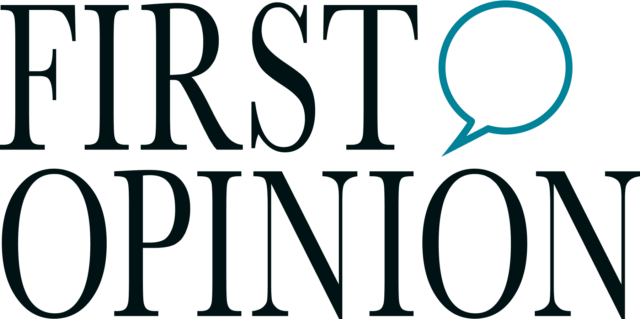
As we approach the anniversary of Hamas’ Oct. 7 attack of Israel, tensions on campuses across the country are likely to reach another boiling point, particularly as the situation in the Middle East spirals. Following the attack and the ensuing war, college and university campuses faced months of protests, encampments, violence, and hate speech. Alongside these demonstrations, students and staff on both sides of the issue criticized the academic institutions where they learn and work for saying and doing too much, too little, or the wrong thing. In response, some universities, including Harvard (where one of us works), UCLA, the University of Pennsylvania, and Northwestern have recently announced explicit “institutional neutrality” policies.
Although this debate is “far from settled,” these universities took the right approach and best policy for supporting academic freedom, exchange and vetting of ideas, and open debate.
While the policy details vary between organizations, “institutional neutrality” means that university leadership will not take a position on the day’s social or political issues in which the university does not have a direct stake. This is a departure for many institutes of higher learning, particularly those that attract liberal and progressive students and staff, where public statements about the university’s commitment to one side of hot-button political issues, such as police violence, abortion rights, and the war in Ukraine have, until now, been not only commonplace but expected.
As academic physicians with expertise in infectious disease and public health, we believe institutional neutrality is an effective way for universities to achieve their societal mission to advance knowledge and debate, while protecting all voices, not just the loudest ones. The same approach should have been taken during the Covid-19 pandemic.
Free speech and exchange of ideas is at the heart of the concept of “the academy.” But the reality is that academia has, over time, come to represent an increasingly narrow range of ideas and opinions. Universities have become information silos in which ideas and concepts are not well vetted, hurting everyone. In fact, some of the most “elite” institutions score the lowest on some measures of free speech. As evidence of the scope of the problem, viewpoint diversity at U.S. universities is strikingly unrepresentative of the U.S. population as a whole; 10% of university faculty identifies as socially conservative while 40% of the population does. There is a direct connection between the lack of viewpoint diversity, the concept of a “correct” institutional voice and political position, and the all-time low public trust in academics, which extends to health care professionals and public health.
The events that took place during the Covid-19 pandemic tell an important story about what happens when those with a single viewpoint shut down reasonable disagreement and debate.
The early days of the pandemic were characterized by two things: uncertainty and fear. The “correct” answer to nearly every relevant scientific question was unknown (and unknowable): Were lockdowns a necessary evil to prevent deaths from the virus? Could restrictions on human interaction be implemented in such a way as to protect the vulnerable but limit harm to other parts of society? Were school closures necessary to protect teachers and vulnerable family members? Do masks work to prevent disease on a population level? When faced with new health threats, we are always balancing knowledge and uncertainty, and stances that seem “right” in the moment may look less so in hindsight.
The level of suppression of respectful discourse on the scientific and ethical considerations surrounding potential alternative approaches to Covid-19 mitigation that began in 2020 was unprecedented. Academic medical centers and universities took strong stands in support of the prevailing narrative: stay home, avoid social gatherings, wear a mask. The typical scientific symposium or pro-con debate was nonexistent. Incredibly, in some academic circles, supporting school reopening was considered racist. Even opining on the origins of the pandemic was seen as taboo. Scientists whispered stories about being censored by superiors, and of self-censoring to avoid backlash and out of fear of being denied grant funding. In response to calls from Stanford colleagues that the university censure Scott Atlas, adviser to President Trump and former neurosurgeon, the New England Journal of Medicine published a piece titled “About Academic Freedom in America,” arguing that, rather than censoring the speech of individuals with whom university leaders do not agree, institutions should “have a voice” and intervene by taking their own institutional public stand “when it concludes that a faculty member’s opinion could cause public harm.” We disagree with this approach.
We are infectious disease physicians and researchers who saw firsthand the way Covid overwhelmed hospitals and filled up the morgues. Nevertheless we believe institutional neutrality regarding Covid-19 public policy would have benefited science and public health by fostering the airing of different ideas and honesty about uncertainty. Much needed voices in support of school re-opening might have been louder. Given the tremendous impact of the pandemic — not only in life and health, but also in livelihood and education — it’s shocking that debate and discourse were so far from the norm.
Similarly, the events that played out on college campuses last year related to the Middle East conflict might have been mitigated to some extent by policies of institutional neutrality — if protesters did not believe they would gain something from their disruptive actions, they might not have taken them.
Academic institutions should be protecting the speech of all of their members. When it comes to controversial topics, the responsibility of universities is to create a safe space for free and open debate, not to elevate some opinions over others, no matter how “obvious” it might appear that one side is “right.” While hate speech should not be tolerated, no views, even those that seem uncomfortable, should be censored. Institutional neutrality is a step in the right direction toward making sure every voice is heard.
Westyn Branch-Elliman, M.D. is an associate professor of medicine at Harvard Medical School and an infectious diseases specialist. Shira Doron, M.D., is a professor of medicine at Tufts University School of Medicine and an infectious diseases specialist.





